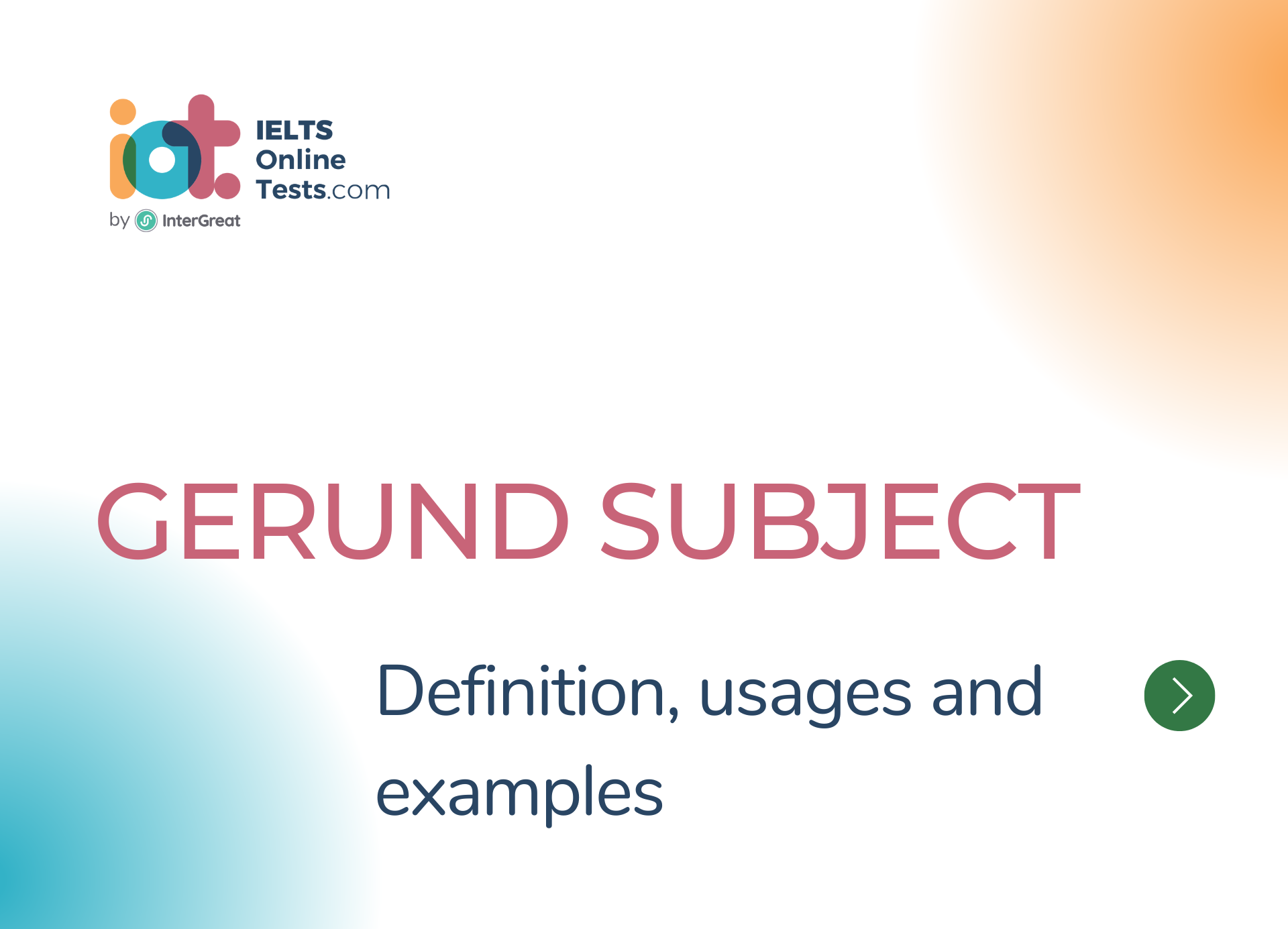
Gerund Subject
A gerund subject is a gerund, which is a verb form ending in "-ing," used as the subject of a sentence. Gerunds function as nouns and can act as the subject of a sentence, representing an action or activity.
Here are some important points about gerund subjects:
Definition: A gerund subject is a verb form that functions as a noun and acts as the subject of a sentence.
Form: Gerunds are created by adding "-ing" to the base form of a verb.
For example, "running," "swimming," or "writing."
Example Sentences:
- "Running is good for your health."
- "Swimming is her favorite sport."
- "Writing requires creativity and practice."
Function: Gerund subjects represent an action, activity, or concept and function as the subject of the sentence.
Verbal Noun: Gerunds are considered verbal nouns because they retain the characteristics of both verbs and nouns. They have verb-like qualities in that they can take objects or modifiers, and noun-like qualities in that they can function as the subject of a sentence.
Verb-like Characteristics: Gerunds can take direct objects, adverbs, or other elements that typically follow a verb.
For example, "I enjoy running long distances."
Noun-like Characteristics: Gerunds can also be modified by adjectives or function as the object of a preposition.
For example, "She has a passion for dancing."
Subject-Verb Agreement: Since gerund subjects are considered singular nouns, they require singular verb forms.
For example, "Running is" (not "Running are") or "Writing requires" (not "Writing require").
Usage: Gerund subjects are commonly used to express general activities, hobbies, or concepts. They help in emphasizing the action or activity as the central focus of the sentence.
Recognizing gerund subjects allows for a greater understanding of how verb forms can be used as nouns and act as the subject of a sentence. They provide variety and versatility in sentence construction and help convey actions or activities as the primary topic of discussion.




